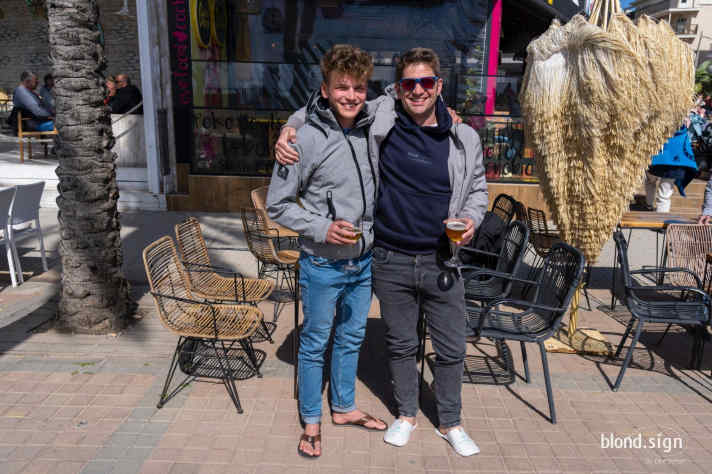Mini crew in distress: Night-time helicopter rescue off Mallorca: Melwin Fink and Marc Menzebach rescued after mast breakage
Tatjana Pokorny
· 02.04.2022
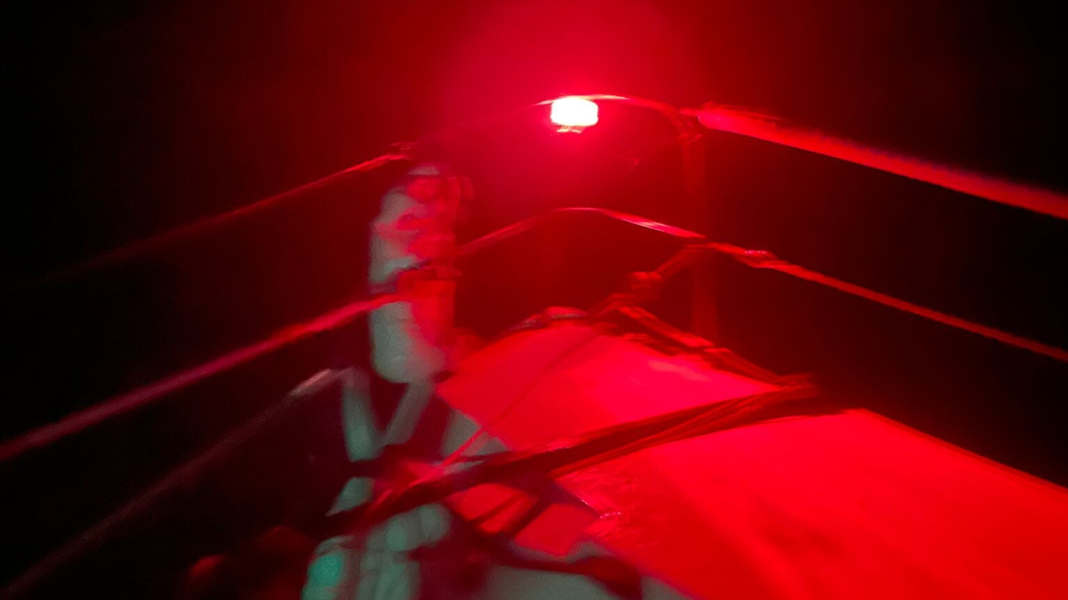
Melwin Fink had imagined this transfer very differently. Together with his sailing friend Marc Menzebach, he wanted to bring his new Vector Mini from Barcelona to Palma de Mallorca. Fink had previously spent many weeks building the boat with Markus Mehlen in a private hall in Bad Salzuflen, then travelled to Barcelona and completed his first test miles there. From Mallorca, the young law student and celebrated Mini Transat bronze medallist wanted to take part in the second half of the Mini Med regatta from Palma back to Barcelona - it was to be the first endurance test for the new boat.
However, Melwin Fink and his co-sailor already had to pass the endurance test during the crossing on the night of 1 to 2 April. The two-handed crew had initially sailed towards Palma de Mallorca with two reefs each in the main and genoa in the forecast winds of between 25 and 30 knots. "Nothing unusual had happened until late in the evening," reports Melwin Fink, "in a regatta we would have had the spinnaker up."
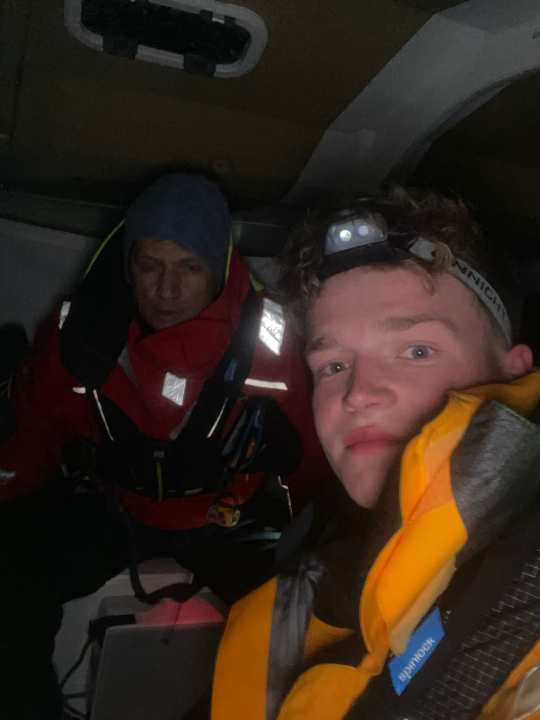
Then, about 30 nautical miles north of Palma, events come thick and fast. The new mast breaks twice at around 11.30 pm: once about a metre above deck and then in the upper third. The rig bends sideways, leaving the crew unharmed. The sailors have no choice but to immediately cut away the rigging and the mainsail - whereupon the Mini moves like a wild cork in the swell. It is immediately clear that the crew has no chance of reaching a harbour under their own power in the given conditions without an engine.
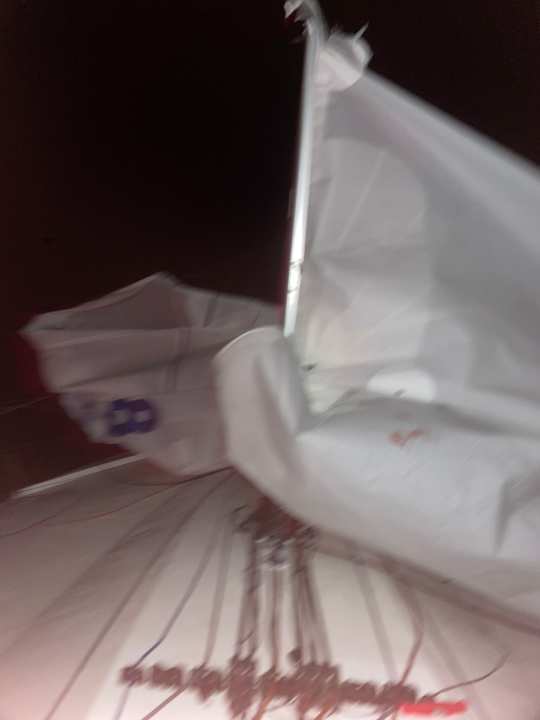
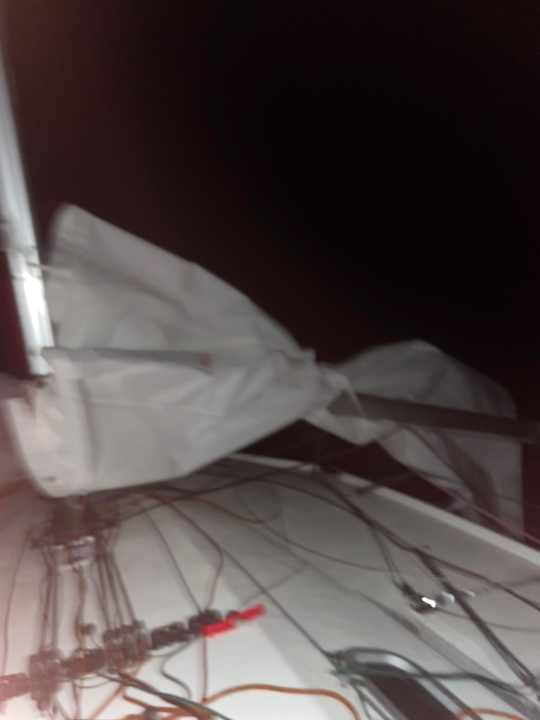
"You really have to overcome yourself to jump into the water"
Fink's first call goes to his father Matthias Hampel thanks to a working mobile phone network. He immediately contacts the MRCC Maritime Rescue Coordination Centre in Bremen. They in turn immediately inform the MRCC on Mallorca. The Spaniards make contact with the stricken crew and send a helicopter with a rescue crew into the air. In the dark of night, Fink and Menzebach prepare for their rescue. Skipper Fink leaves the only survival suit on board to his co-sailor. Fink himself is wearing HPX sailing clothing and a Vito lifejacket from Spinlock. The rescuers will later be impressed to say that they have rarely rescued such a well-equipped and professional crew. The sailors are informed beforehand that they have to jump into the cold, dark sea for the rescue because their boat is moving far too much for a direct rescue from the deck. "That was an extreme feeling, you don't want to do that in the first place. You have to really push yourself to do it," Fink remembers the rescue procedure. Paddling in the water, they have to move at least ten metres away from the boat and also feel the brutal downdrafts of the helicopter.
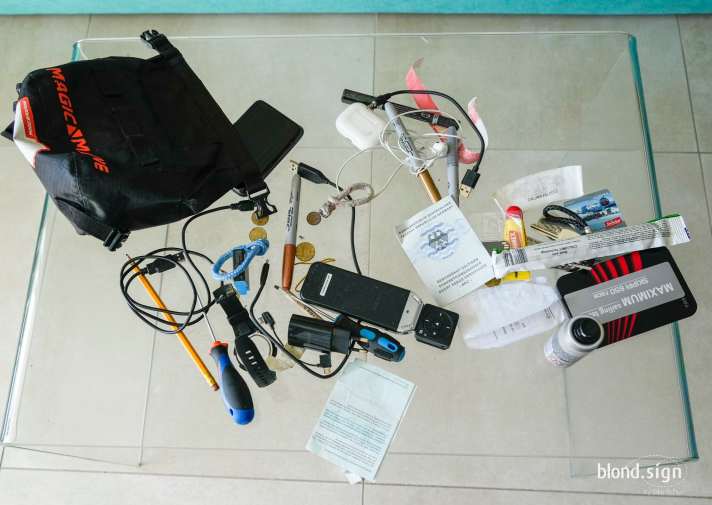
There are three rescuers and they work perfectly: one flies the helicopter, one works on the winch and takes care of the third man, who is lowered into the darkness and reaches Marc Menzebach first and Melwin Fink second, hooks them in and brings them safely up into the helicopter one after the other. During the rescue, the boat and the men in the water are illuminated by powerful spotlights.
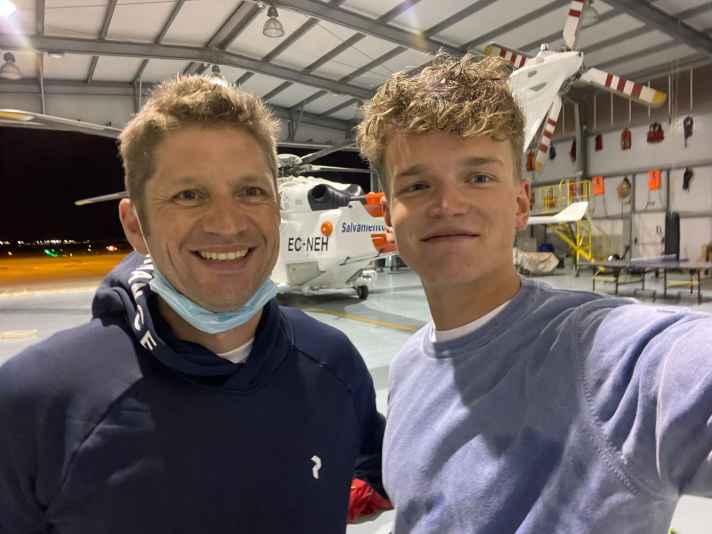
The sailors have to leave their Mini behind. It is equipped with a PLB signalling transmitter. The tracking works until around 1 p.m. on 2 April, so that the Mini can be roughly localised. Fink and Menzebach reach Palma in the early hours of the morning. The experts from insurer Pantaenius have already been informed and have immediately taken over the search and organisation of the Mini recovery. A few hours later on Saturday afternoon in Palma, Melwin Fink finds the events "unreal" and "crazy" as he and Marc Menzebach slowly calm down, wait for more news about his boat and review the scenes of the night.
